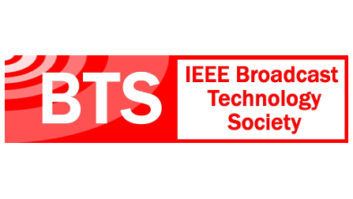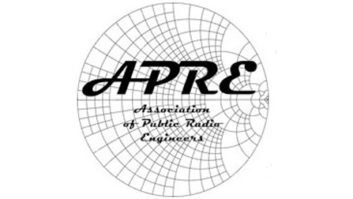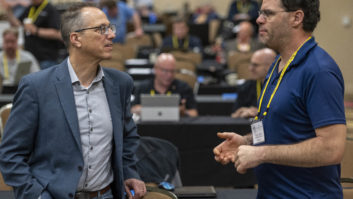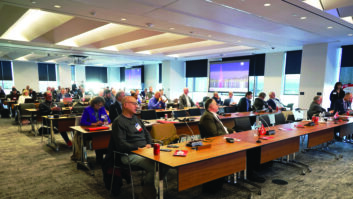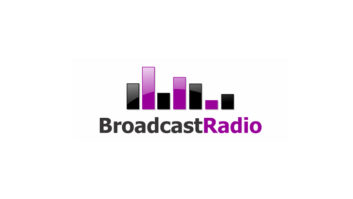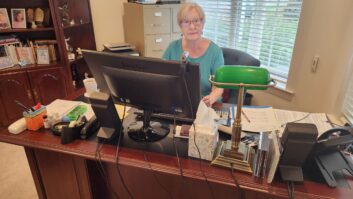This story originally appeared on Radio World’s sister publication B&C.
FCC chairman Ajit Pai says the public interest “includes a healthy broadcast industry.” Since the FCC has a mandate to protect the public interest, broadcasters should be in good hands in a Pai administration—or at least that was the signal he was sending to the Wyoming Association of Broadcasters.

He also pledged to do what he could “within the law” to help lower power TV stations and translators in the post-incentive auction repack.
“Time passes and technology changes, but local broadcasters remain the linchpins of their communities,” he said, according to a copy of his remarks to their annual convention June 5—the chairman was on a five-state road trip.
Pai was preaching to the crowd, obviously, but it was a clearly a shout-out rather than a sermon.
“Local broadcasters are who we turn to when disaster strikes and we are desperate for up-to-the-minute information. Local broadcasters are who we look to for local news and weather,” he said. “And local broadcasters keep us entertained with everything from the most popular shows and songs to calls of our favorite college and high school sports. It’s shared experiences like these that help bind our communities.”
Pai said he has always championed local broadcasting from his commission perch and has “doubled down” since being named chairman last January.
Pai said one way he was doing that was his review of media rules, looking to identify what works, what can work and what needs to be scrapped. He said there were some “ripe candidates for pruning.”
Those include his proposal to eliminate the main studio rule, which required stations to have a studio physically in their cities of license in an age where, Pai pointed out, social media or emails or phone calls are the more likely way to contact a station these days than head down to a physical location.
Pai talked about the broadcast incentive auction but mostly to point out that no full-power or Class A TV station will need to be repacked after that auction—there are plenty of wide open spectrum spaces in Wyoming.
But that doesn’t mean no stations will be affected. He said it was likely some low-powers and translators will be displaced.
“I know that these stations play an important role in your communities, delivering major network programming and public broadcasting to many Wyomingites,” he said, adding: “Since 2012, I’ve focused on the importance of the FCC doing what it can within the constraints of the law to minimize the impact of the incentive auction on low-power television stations and translators. I want to reiterate this morning that we will work to find new homes for as many of these displaced stations as possible. We will use all tools at our disposal to find spectrum for displaced Wyoming low-power television stations and translators so that they can continue serving the citizens of Wyoming.”
Some of those LPTVs have taken the FCC to court, arguing it has not done everything within its power, or within the law, to protect their spectrum rights.






